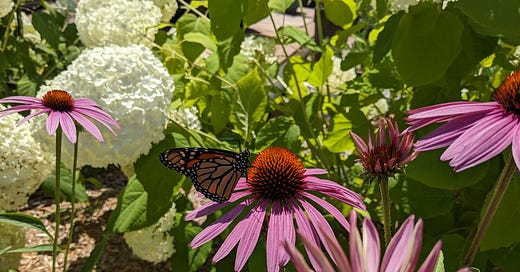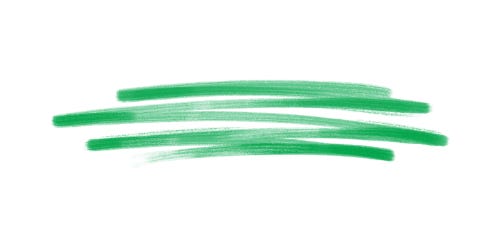Poetry Bulletin: July 2024
Deadlines + Project Updates + Who's the biggest funder of the National Poetry Series?
Hey poets — you’ll still find deadlines and resources below, but this month I’m also sharing two important project updates:
Submission fee support milestones
Fee waiver research progress, with insight on the National Poetry Series
Submission Fee Support Fund
In March 2021, a submission fee support fund was added to this project, for poets excluded by costly book submission fees (steps to request support here). Some highlights and transparency on numbers:
Over 200 poets have now been supported, as of this month!
We’ve funded 79 requests in 2024 so far, and each has from one to three submissions covered. This year I’m getting many more requests than I can fill—for comparison, in all of 2023, we funded 50 requests.
Nearly $10,000 in fee support has been given since 2021—with over $2,700 of that given in 2024 so far.
How is submission fee support funded?
Your paid subscriptions on Substack fund most of this. Revenue is split 50-50: Half to submission fee support. Half to caring for this project: domain, hosting, new research (e.g., fee waiver outreach), and commissioning articles/field notes from poets (more on that soon).
The Poetry Bulletin has almost 4,300 readers, and right now 125 of you support the project with a paid subscription—thank you!
In 2024 (so far), $2,024.95 in fee support was funded with your subscriptions.
Some poets have tried/waited many times to get support. To try and cover the gap between incoming requests and available Substack funds, I chip in from personal funds when my guy Carl and I can—so far this year, that’s been $677.63 in additional fee support.
Fee Waiver/Fee Support Research
The support fund creates more access to publishing, but obviously it doesn’t get to the root: inaccessible fees and practices at many publishers.
A common thing I hear from publishers is that fee waivers are time-consuming to offer and difficult to administer behind the scenes. I get it and want to keep honoring that, knowing how strapped for time many presses are and knowing personally how much time it takes to handle the Bulletin’s fee support.
The good news is fee waivers are not the only way. The 2024 poetry publishing update highlighted a handful of presses taking new, promising approaches to fee fairness and access.
And yet, over 60% of the poetry book ecosystem is actively excluding poets who can’t afford fees. The work is clear—and bigger than what our mutual aid alone can do.
So I’m reaching out to presses one by one to ask whether and how they offer (or if they’d consider offering) fee support. I’m approaching this in two ways:
When I receive multiple fee support requests for a contest that doesn’t offer waivers, I reach out to let them know there’s a need. I also alert them that the Poetry Bulletin is covering fees for some of their entries but that we don’t have funds to cover everyone who would like to submit.
The 2024 poetry publishing update identified the least accessible publishers in a clearer way. I’m prioritizing those as I continue this outreach.
Initial publisher responses + National Poetry Series
The handful of publishers I’ve written so far have either not responded at all or they’ve responded to say, definitively, that they will not offer fee waivers, fee-free periods, or other kinds of access.
The National Poetry Series is the least accessible opportunity on the list, so I reached out to them first. During the pandemic, they raised their fee from $30 to $35, which the coordinator Beth Dial said was done “to generate much needed revenue during a time when fundraising was impossible. It was not a decision reached lightly and it was discussed at length with our board members. We decided that if a higher fee resulted in a significant decrease in submissions, we would revisit it the following year.”
I’m grateful for this transparency and hope it helps others to have it. It’s helpful to know the Series is clear about viewing submission fees as revenue and increases fees (well beyond the rate of inflation) to generate more revenue. 1
The size of the fee increase—$30 to $35—is significant, especially for a reading period that was already one of the most expensive. Beth shared the NPS gets between 1,400 and 1,700 submissions each year. That’s $7,000 to $8,500 in additional revenue—and none of it could be earmarked for fee waivers or a fee-free reading period?
To better understand, I turned to the latest 990 for the National Poetry Series, for the fiscal year ending October 2023:
The National Poetry Series reports submission fee revenue of $50,610.
For comparison, in that same year, the Poetry Foundation provided $30,000 of funding to the NPS.
In fact, our collective of poets is the biggest funder of the National Poetry Series—and arguably its most reliable funder, given the cyclical nature of the contest and how many attempts it takes to get a book accepted by a publisher.
So could we imagine some possibilities here?
What can we do when the least accessible reading period has said it’s not willing to open the gate for excluded, cash-strapped poets?
The National Poetry Series said they will only lower their fees if they get fewer submissions. And this doesn’t speak to the need for fee waivers or other forms of access.
The next submission period for the National Poetry Series begins in January.
There are over 4,000 poets reading this bulletin now. I imagine many of you are already drafting a book to send—and many more are working on a book that you cannot afford to send.
What if we choose solidarity instead of subsidizing the least accessible reading period?
What if those of us who can afford a $35 submission fee spend that money on books or submissions with smaller, less-funded—and often more accessible—presses instead? What if we collectively do that on the deadline day for the National Poetry Series in 2025? 2
Creative Support: Workshops, Awards & More
If you’re writing and submitting in solidarity with writers facing genocide now, I included tips for researching and vetting organizations in this document. Even a couple minutes of searching Twitter, Substack, or an organization’s website can be clarifying.
Workshops4Gaza is bringing writers, artists, and educators together to offer online workshops, with all proceeds going to Palestinians in Gaza. They’ve got a handful of upcoming workshops and are looking for more folks to lead workshops.
- put together a hands-on, deep dive into self-publishing a poetry book. I especially loved the care with the cover art… it’s a level of making the process your own that’s so special about self-published books and projects.
Mizna has launched Uncrafted, a column that “delves into the political + craft lessons offered by anti-colonial literary lineages.”
Cave Canem is launching a new research project, “Magnitude and Bond: A Field Study on Black Literary Arts Service Organizations.” You can sign up here to get updates.
July 29 — Midwest Culture Bearers Award
August 1 — Granum Foundation Prizes “to help U.S.-based writers complete substantive literary works—such as poetry books, essay or short story collections, novels, and memoirs—or to help launch these works.”
August 15 — Arc Poetry is seeking a Canadian poet to be their next virtual poet-in-residence.
Upcoming Deadlines
Between now and early August, there’s one press signed on to PACBI that has an open reading period: Mason Jar Press and its 1729 Book Prize in Poetry, but they’ve already hit their submissions cap.
Sundress Publications has an open reading period for full-length poetry books now and has been vocal and concrete (e.g., a microgrant) in supporting Palestinian writers, although PACBI isn’t mentioned in their posts or on their site.
PACBI isn’t the last word on or only form of solidarity, but it’s a place to begin. If you’re submitting in solidarity with writers facing genocide now, in Palestine and elsewhere, it’s a way to find presses that are more likely to share your values in spirit and in practice. Publishers for Palestine and Writers Against the War on Gaza both have lists of presses committed to PACBI. I hope more presses get clear on this and sign on to PACBI following the ICJ ruling last week.
There are about 10 deadlines for full-length poetry books between now and mid-August. The full spreadsheet of upcoming manuscript deadlines is available here.
The bulletin is made by Emily Stoddard, and the big list of poetry publishers came together as she found a publisher (Game Over Books) for her poetry debut, Divination with a Human Heart Attached. If you have updates to a publisher’s listing or want to share a resource, please leave a comment.
re: revenue, it’s worth noting that many small presses are not nonprofits like the NPS and do not have the resources to seek nonprofit status. Nonprofit status allows the NPS to access funds and relationships that other presses simply can’t. They also have reserve funds that many, many presses do not have. So shifting some or all of the burden of generating more revenue to poets is an interesting choice.
To be clear, for me, this doesn’t just have to be about knocking on the doors of prestige institutions and begging them to let us in. There are symbolic wins, and then there’s power in a refusal to play the game at all. I’m here for pushing on the system as it is, knowing how many poets still need the resources gated within the system—and I’m also very much here for generating possibilities beyond the gated prestige-keepers. We don’t have to imagine only as big as our institutions.






Thank you so much for mentioning me here - how sweet! And I enjoyed your entire post, so helpful <333
Reading this today made me happy. Thanx so much for what you do. ❤️❤️❤️❤️❤️❤️❤️🤩 and I love your idea to push back❣️❣️